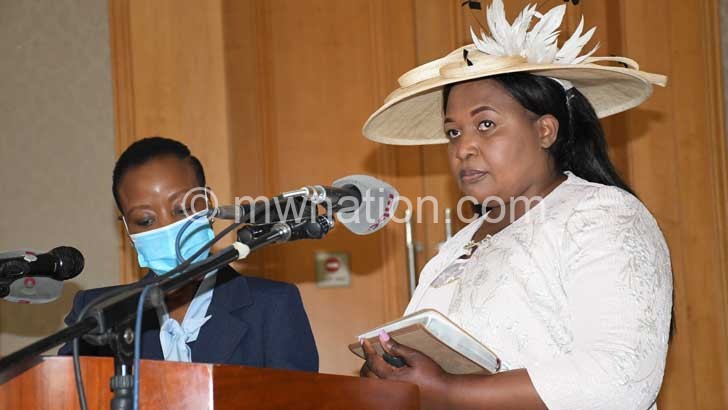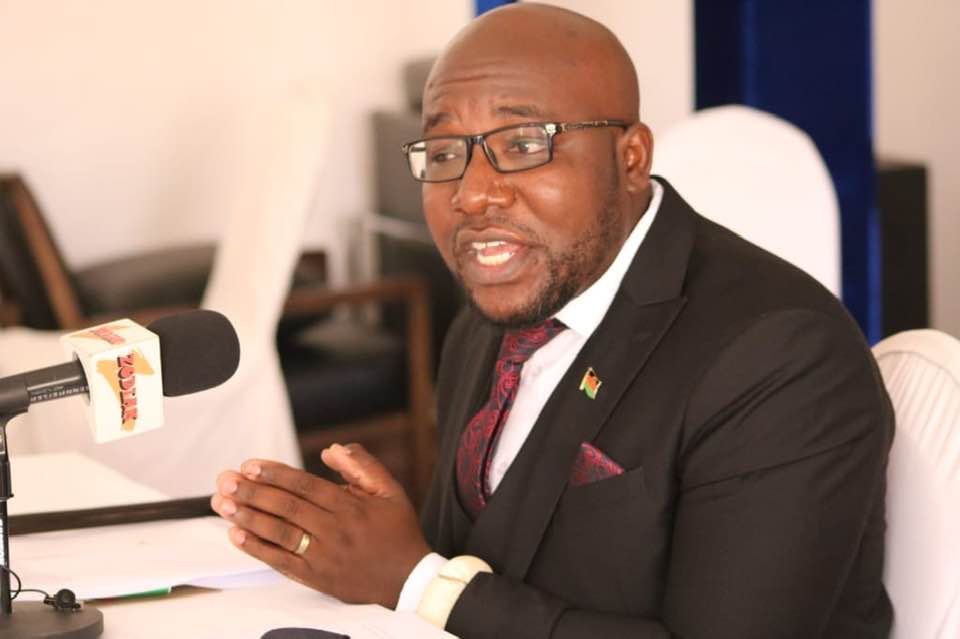Parliament on Tuesday passed the Non-Governmental Organisations (NGO) Act Amendment Bill which defines roles of the NGO Board and Council for NGOs in Malawi (Congoma) besides demanding accountability for funds.
The Bill, unanimously supported by both sides of the House, has also revised the registration fee for NGOs from K50 000 to K5 million.
Nkusa-Nkhoma: It is imperative to strengthen and streamline the capacity of NGOs
Tabling the Bill in Parliament, Deputy Minister of Gender, Community Development and Social Welfare Agnes Nkusa-Nkhoma asked the House to pass the amended law because it would bring sanity in NGO operations and ensure that they account for their money.
She said the law also seeks to align the NGOs’ interventions to the national development agenda.
Nkusa-Nkhoma said: “Currently, donors or development partners are providing financial support to Malawi through NGOs on off-budget arrangement. There is evidence that shows that most of these resources are not benefiting the common Malawian.
“It is, therefore, imperative to streamline and strengthen the capacity of the NGO Board while ensuring that NGOs are aligning their interventions to the national development agenda.”
Democratic Progressive Party (DPP) spokesperson on legal affairs in Parliament Bright Msaka said the main opposition party supported the amended law as it would compel NGOs to account for resources that they receive on behalf of the poor.
Patel: NGOs need to be accountable
He said some NGOs abuse funds that are supposed to empower Malawians. He added that some people running the NGOs enrich themselves while the areas they work in remain underveloped.
Said Msaka: “The resources given belong to the suffering people.”
On her part, United Democratic Front (UDF) spokesperson in Parliament Lilian Patel also said her party supported the Bill, adding NGOs need to be accountable to the people just like government is asked to be accountable.
In an interview after the passing of the Bill, NGO Board chief executive officer Voice Mhone commended Parliament for the move, saying it will help address challenges that were being faced in the NGO sector.
Earlier, lawyer representing some of the NGOs which obtained a court order restraining Parliament from tabling the Bill, Wesley Mwafulirwa, claimed that Parliament had ignored a court order by passing the Bill.
But Minister of Justice Titus Mvalo said he was not aware of the said court order and so was the ministry responsible for the Bill. He said there was no communication about the court order.
Some NGOs earlier sought court intervention to stop the amendment of the NGO Act. The NGOs felt the amendment was government’s move to control and silence them. The NGOs also felt the revised registration fee was too high.
The post Parliament passes law to regulate NGOs appeared first on The Nation Online.
 Moni Malawi
Moni Malawi 

